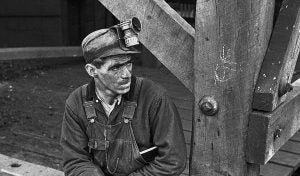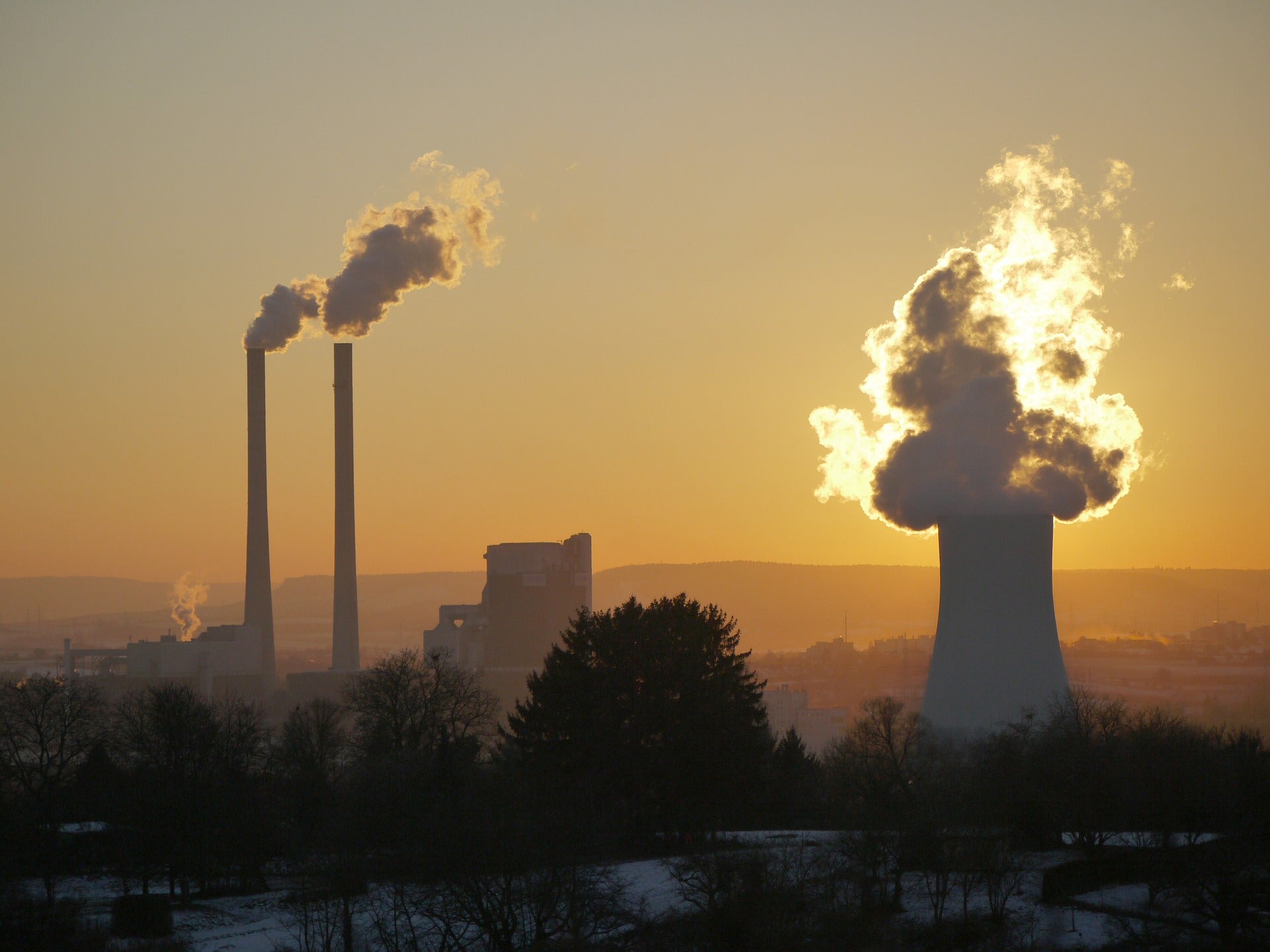
How public benefits programs can help protect fossil fuel workers and communities in transition
This third report in a joint research series by Environmental Defense Fund and Resources for the Future examines public benefits programs designed to protect individual and community economic security and health as the U.S. transitions to a clean economy. Jake Higdon of EDF and Molly Robertson of RFF co-authored the report described in this blog post. All views expressed here are EDF’s.
In hundreds of communities around the U.S., coal miners are paying a tragic price for the extended time they spent breathing in coal dust underground: They suffer from Black Lung Disease, which robs patients of their ability to breathe without assistance. Tragically, there is no cure — only treatments that ease the symptoms.
Harvey Hess of southwest Virginia is one of those retired miners. He began working in coal mines on his 17th birthday and continued working in them for 37 years. Now, like many with Black Lung Disease, he receives disability benefits from a federal trust fund. These crucial funds allow Harvey and others to afford essential medical support, like the oxygen tank he relies on to breathe 24/7.
However, Black Lung Disease is not the only chronic issue facing coal workers and coal communities, and it is also not the only instance where public benefits can help support workers’ health and financial security. Besides Black Lung Disease benefits, the U.S. government has also stepped in to support union pensions and health care as coal companies dodge their promises to employees through bankruptcy hearings. And the spillover effects from the decline in production of coal and other fossil fuels can leave millions of Americans in fossil fuel regions — beyond just the energy workers themselves — in need of immediate assistance to soften the economic downturn, maintain economic stability and preserve community health.
The role of public benefits programs
Policies that distribute resources to support general wellness, buffer communities from economic shock, and ensure individuals’ ability to meet their basic needs are sometimes referred to as “public benefits.” For example, they provide retirees with pensions, displaced and disabled workers with financial relief, and low-income families with health care and nutritional assistance.
National public benefits are often referred to as the social safety net because they serve as the first line of defense in times of crisis. The current COVID-19 pandemic has highlighted the importance of expanded social safety net programs, like unemployment insurance, in insulating families and communities from the most severe economic shocks. However, compared to peer nations, the U.S. spends a relatively small percentage of its GDP on social safety net programs for workers and has virtually no safety net for local governments, which often experience fiscal crises during economic downturns, rendering them unable to provide essential services — often at a time when more people need them.
As we explore in other reports in this series, fossil fuel communities are likely to need targeted federal policies in economic development, workforce development, infrastructure, environmental remediation, and more as the U.S. transitions to a clean economy. Although it is clear that broad public benefits cannot ensure fairness for workers and communities alone, they can play a complementary role to these more targeted approaches.
For example, public benefits can provide an immediate stopgap in scenarios where workers and communities unexpectedly lose employment — and more targeted approaches have not been deployed or have been unsuccessful. Our latest report explores the role of existing public benefits in protecting workers in transition, and which reforms or models could strengthen the delivery of federal benefits to fossil fuel producing communities.
Key findings on the role of public benefits policies for communities in transition:
1. Public benefits, including programs that we think of as the social safety net, are critical for communities in transition.
Public benefits programs have received limited treatment in literature focusing on fairness for workers and communities. However, since the economic impacts of the shift to clean energy will not be distributed evenly and public benefits are designed to direct resources to those bearing adverse impacts, these policies are relevant to an equitable energy transition.
Social safety net programs already contribute to fairness for fossil fuel workers in transition, and their role will almost certainly grow in the context of an accelerated energy transition. These programs can improve economic security and health for individuals and families facing job displacement. Policymakers should recognize that regions with weaker social safety nets may require more robust interventions in a transition context, whereas other regions with stronger social safety nets may require less intervention.
2. Among social safety net programs, those that automatically expand in times of economic hardship are most likely to provide significant support to communities in transition.
These benefits programs, known as automatic stabilizers, can contribute to fairness for fossil fuel–dependent communities by acting swiftly to smooth consumption and improve economic stability in the face of energy-related economic shocks. There may also be opportunities to strengthen these policies to be more responsive to regionally concentrated economic shocks or to waive stringent eligibility criteria that may limit accessibility for fossil fuel communities.
3. Social safety net programs with strict eligibility requirements are less likely to support workers in transition. Reforms to expand access and utilization can maximize benefits for fossil fuel communities.
Since many federal social safety net programs are means-tested (meaning they assess eligibility based on income or financial status) or require individuals or states to opt in, access is limited by stringent eligibility requirements, state political choices, lack of public awareness or other barriers. Policy that expands federal benefits eligibility, access, and utilization could contribute to fairness for workers in the transition to a clean economy.
Social safety net policies that are means-tested also may be less directly applicable to miners and utility workers, who tend to have above-average incomes — though they may apply to other workers and community members who are indirectly affected by fossil fuel divestment.
4. Despite the importance of broad-based social safety net programs in the U.S., our review suggests that these existing policies cannot address all the needs of fossil fuel communities.
Additional, targeted policies will likely play a significant role in ensuring fairness for these communities, because they can be deployed in direct response to the specific needs of fossil fuel–producing regions facing economic contraction.
Still, existing social safety net programs can offer immediate albeit temporary relief, while policymakers implement more targeted approaches, which often get held up by the political process.
5. Industry-specific pension and health benefits can contribute to individual well-being and community economic stability.
With more than $1 billion in authorized transfers to coal pension and health benefits alone in 2020, federally supported programs for coal workers make up the lion’s share of targeted federal support to fossil fuel communities today. However, programs that depend on revenue from fossil fuel production will become unsustainable as the industry declines. Policymakers who hope to preserve these benefits should consider decoupling their funding from rates of fossil fuel production and reforming company bankruptcy processes.
Other industry-specific programs may provide a helpful model to support workers and communities in transition. One promising model is the Veterans Health Administration (VHA), which offers health care to a specific group of workers that share some characteristics with fossil fuel workers, including high occupational risk hazards, high rates of disability and large numbers of workers facing transition.
What’s next?
Public benefits programs cannot on their own act as a replacement for employment, economic activity or work-based benefits for communities reliant on the fossil fuel economy. However, they can buffer against deep economic shocks, provide a temporary bridge to new job opportunities, and serve as a complement to more targeted policies. We explore those more targeted approaches in our recent reports on federal economic development policies and investment in environmental remediation and infrastructure. Over the coming months, we will publish additional reports, blogs and materials in this series to address other key policy mechanisms, including investments in workforce development programs and labor standards, and explore case studies of communities in transition.
Read the full public benefits report here.
Learn more about the full series on ensuring fairness for fossil fuel workers and communities here.













One Comment
While we don’t have a clue about the birthplaces of this occasion, we are absolutely committing to celebrate! As adaptable and interesting as it is flavorful, there are countless reasons and approaches to praise our number one normal sugar, and today we are sharing five of our top choices.
health food shop